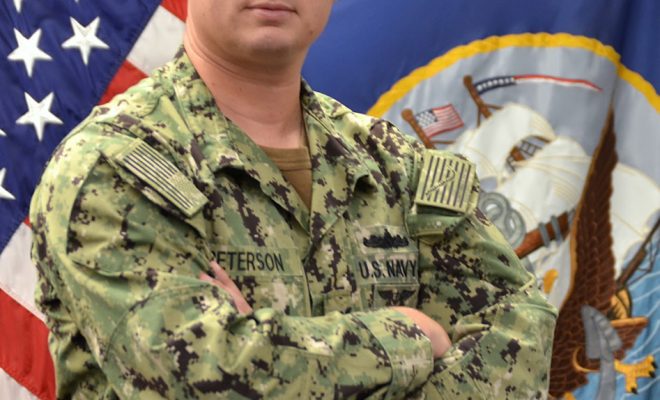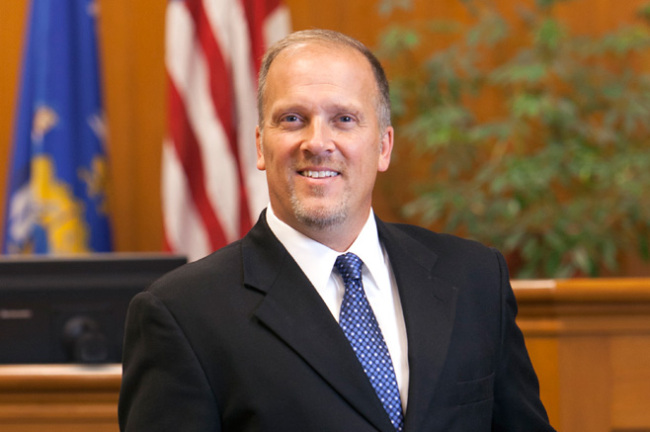Wisconsin Rapids native trains those who serve

By Jerry Jimenez
GREAT LAKES, IL – A Wisconsin Rapids native is an instructor at the Naval Education and Training Command, preparing the U.S. Navy’s future warfighters.
Petty Officer 1st Class Erik Peterson, a native of Wisconsin Rapids, Wisconsin, is an instructor at NETC, providing the fleet with sailors who possess the basic technical knowledge and skills necessary for naval service.
“I’ve been to many different platforms and worked on many different types of equipment in the fleet,” Peterson said. “This gives me a chance to answer questions that my instructors could not answer when I was a student and hopefully, prepare future sailors for the fleet so they can be successful in their goals and help set up those who wish to make the Navy a career for success.”
Instructors are experts in the subject matter they teach, and they provide cutting-edge technical training that transforms civilians into mission-ready sailors.
Peterson credits success as an instructor to many of the lessons learned growing up in Wisconsin Rapids.
“In a small community, you have to learn to trust and rely on others,” Peterson said. “This helped prepare me to be part of a team, whether as part of a work center, a fire party or a shipboard training team.”
NETC educates and trains those who serve our nation, taking them from street-to-fleet by transforming civilians into highly skilled, operational, and combat ready war fighters, while providing the tools and opportunities for continuous learning and development.
NETC is made up of six commands that provide a continuum of professional education and training in support of Surface Navy requirements that prepare enlisted sailors and officers to serve at sea, providing apprentice and specialized skills training to 7,500 sailors a year.
“Our priorities center on people, capabilities and processes, and will be achieved by our focus on speed, value, results and partnerships,” said Secretary of the Navy Richard V. Spencer. “Readiness, lethality and modernization are the requirements driving these priorities.”
Serving in the Navy is a continuing tradition of military service for Peterson.
“My grandfather was a captain in the Army during WWII,” Peterson said. “I was always very close with my grandfather growing up, but he rarely talked about his time in the Army with me until I joined the Navy. I was able to visit some of the places he was sent during WWII, such as The Philippines, Okinawa and Japan, and was able to give him first-hand accounts of how those places have changed since he had been there 60 years prior. It let him see the results of the hardships and sacrifices that his generation had to endure.”





